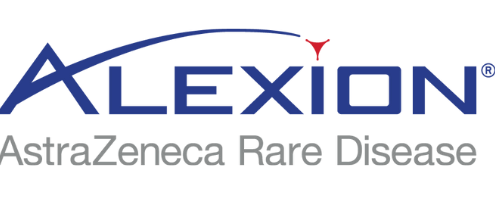2024 CNS Research Day

On Tuesday, June 11th, 2024, the Department of Clinical Neurological Sciences will host its 21st annual CNS Research Day. The full-day event features a series of poster and oral presentations from our residents, graduate students, PhD candidates and postdoctoral fellows. We will also host a distinguished researcher who will present the keynote address. Attendees of the event are the Department’s faculty, including neurosurgeons, neurologists, affiliated radiologists, pathologists and imaging researchers.
ATTENDEE REGISTRATION NOW OPEN - CLICK HERE TO REGISTER
Event Program
COMING SOON!
Venue
King's University College
266 Epworth Avenue, London, ON N6A 2M3
CNS Research Day will be held at the Kings Centre (Main level map, Lower level map).
Free parking is available. The closest parking lot is P3 (map).
Schedule of Events
COMING SOON!
Attendee Registration
Attendee Registration is now open.
Don't forget to register before the deadline on Friday, May 24th
*Please note that if you have submitted an abstract, you have already registered for this event and do not need to register with this link.
Keynote Speaker

Dr. Michael Hill is a Professor for the Departments of Clinical Neurosciences, Community Health Sciences, Medicine and Radiology at the University of Calgary. He is also Director of the Stroke Unit for the Calgary Stroke Program, Alberta Health Services.
Dr. Hill completed undergraduate training at McGill University in biochemistry and went on to the University of Ottawa medical school. He trained in internal medicine at the University of Ottawa and received his FRCPC (Internal Medicine) in 1997. Subsequently, he completed a neurology residency at the University of Toronto and received his FRCPC (Neurology) in 1999. Dr. Hill moved to Calgary to undertake a stroke fellowship and clinical epidemiology training at the University of Calgary and was appointed to faculty in 2001. He then completed his MSc thesis in 2003, and is currently Director of the Stroke Unit at the Foothills Medical Centre, Calgary Health Region.
Dr. Hill’s research interests include stroke thrombolysis, stroke epidemiology, and surveillance and clinical trials. He is funded by the Canadian Institutes for Health Research (CIHR) and holds the Heart & Stroke Foundation of Alberta/NWT/Nunavut professorship in Stroke Research. He holds and has held operating and clinical trials grants from the CIHR, Heart & Stroke Foundation of Alberta/NWT/Nunavut and from various industry partners as well as NIH (NINDS). Dr. Hill has also received a number of awards, including the Barnett, The Pessin Award and the ARP merit award and the Performance Recognition award for his role in research and his outstanding publication record.
Judges
COMING SOON!
Important Dates
January 2024 Abstract submissions open
March 28th Abstract submissions close
Early May Notification to presenters of oral/poster acceptance
June 11th Research Day!
Abstract Submission Guidelines
Eligibility Requirements
Must have an author or contributor who holds a membership in CNS.
Abstracts should be no longer than 350 words and utilize the headings described below.
The presenter of all abstracts must be a trainee (for example, a undergraduate, graduate or medical student, resident, fellow).
Basic Information
Abstract Title, First Author, Additional Author(s) and Research Supervisor
Abstract Submission Criteria/Format
*based on the JAMA Structure for Abstract Submission
|
Importance: |
The abstract should begin with a maximum of two sentences explaining the clinical (or other) importance of the study question. |
|
Objective(s): |
State the precise objective or study question addressed in the report (e.g. "To determine whether..."). If more than 1 objective is addressed, the main objective should be indicated and only key secondary objectives stated. If a priori hypothesis was tested, it should be stated. |
|
Design and Participants: |
Describe the basic design of the study and include the specific study type (e.g. randomized clinical trial, cohort, cross-sectional, etc.) and intervention where applicable. State the clinical disorders, important eligibility criteria, and key socio-demographic features of patients (or other study participants). The number of eligible participants and how they were selected should be provided, including the number approached but who refused or were excluded. For selection procedures, these terms should be used, if appropriate: random sample (where random refers to a formal, randomized selection in which all eligible individuals have a fixed and usually equal chance of selection); population-based sample; referred sample; consecutive sample; volunteer sample; convenience sample. If matching is used for comparison groups, characteristics that are matched should be specified. In follow-up studies, the proportion of participants who completed the study must be indicated. |
|
Results: |
Summary demographic information (e.g. characteristics such as sex and age) and the number of study participants should be reported in the first sentence of the Results paragraph. The main outcomes of the study should be reported and quantified, including the final included/analyzed sample. When possible, present numerical results (e.g. absolute numbers and/or rates) with appropriate indicators of uncertainty, such as confidence intervals. Use means and standard deviations (SDs) for normally distributed data and medians and ranges or interquartile ranges (IQRs) for data that are not normally distributed. Avoid solely reporting the results of statistical hypothesis testing, such as P values, which fail to convey important quantitative information. For most studies, P values should follow the reporting of comparisons of absolute numbers or rates and measures of uncertainty (e.g. 0.8%, 95% CI −0.2% to 1.8%; P = .13). |
|
Conclusions and Relevance: |
Provide only conclusions of the study that are directly supported by the results. Give equal emphasis to positive and negative findings of equal scientific merit. Also, provide a statement of relevance indicating implications for clinical practice or health policy, avoiding speculation and overgeneralization. The relevance statement may also indicate whether additional study is required before the information should be used in clinical settings. |
Click here to download this information as a PDF.
Resources
Poster Printing Services:
Abstract Writing Tips & Tricks:
Event Sponsors
Thank you to our 2024 CNS Research Day Event Sponsors!



Award Winners
Come back after the event to see this year's award winners!
To view last year's winners, please visit the 2023 CNS Research Day page.








